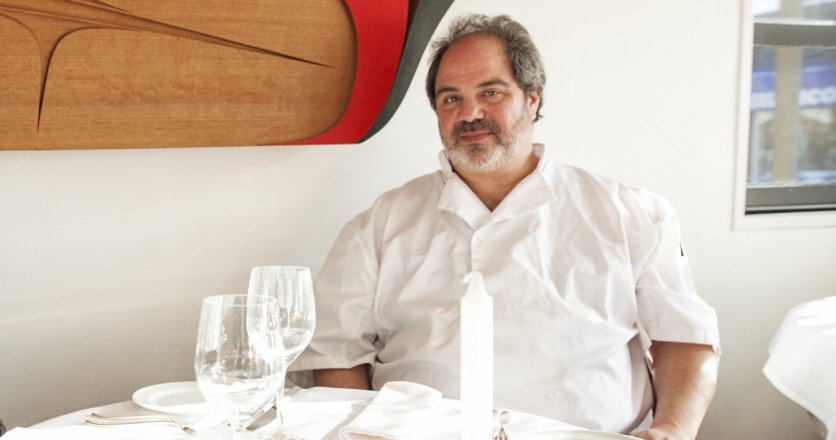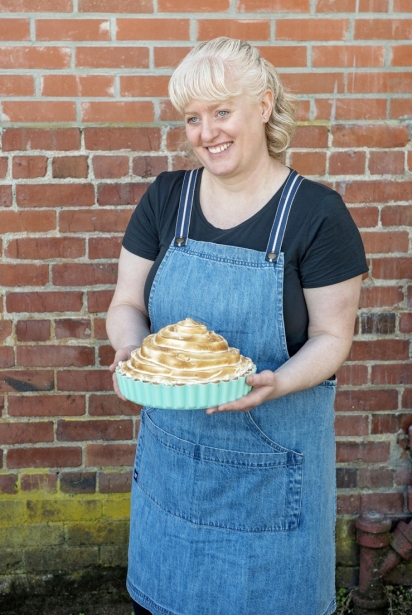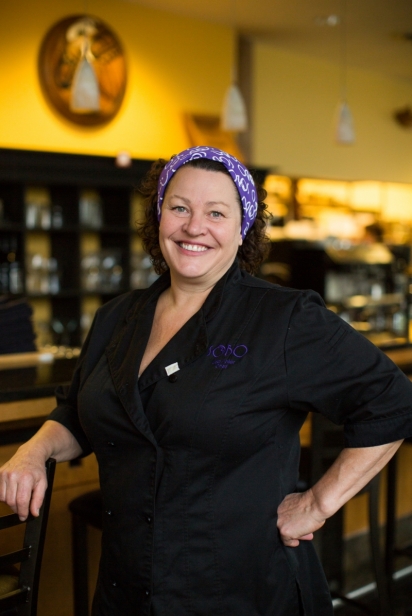Well-Schooled
Consider it the Harvard of cooking schools. Located in leafy Hyde Park in New York’s Hudson River Valley, the Culinary Institute of America (CIA) is an elite private college that turns out top chefs at a cost of about US$34,000 a year. Anthony Bourdain was a grad. So were Cat Cora, Grant Achatz, Rocco DiSpirito and Larry Forgione.
But is it any use to a chef on remote Vancouver Island?
“A hundred percent,” says Andrey Durbach, the chef-owner of Il Falcone in Courtenay. “It’s not just for the wealth of knowledge you acquire, it’s the discipline.”
“The business management part of it was stellar for me,” says Kate Cram, chef-owner of Old Town Bakery and Wild Poppy Market in Ladysmith. “It gave me the confidence to go into business for myself.”
“I have been beyond lucky with where I ended up, and I would never have landed that first internship without the CIA,” says Lisa Ahier, the chef-owner of SoBo in Tofino.
Here’s how three of Vancouver Island’s best chefs found their way to the CIA and the impact it has made on their careers.
‘A militaristic environment’
Durbach grew up in Vancouver and got his first restaurant job washing dishes at 16 years old—and was immediately hooked. By 17, he was cooking sauces; by 21, he was sous chef at Café de Paris. “I wasn’t trained, but I was a good mimic,” he says. “I learned how to do the work before I acquired the skills.”
At the same time, he studied English and theatre at university, and was contemplating an MFA in stage direction when he realized how much he enjoyed cooking in restaurant kitchens. He also realized that at some point, you really do need the skills. So he decided to use an inheritance from his grandfather to attend the CIA in New York.
“It was very difficult,” he recalls. “It was a very regimented, militaristic environment.” Students lived in a dorm. Days started at 3:30 a.m. Instructors literally measured the length of students’ hair. All of that came as a shock for a kid from laidback Vancouver. “I started in a class of 40, and I finished two years later in a class of 12. It was brutal,” he says. “If you weren’t disciplined and fastidious, you just didn’t survive.”
But there were great moments, too. “Halfway through our culinary education, we were all pulled out and told, ‘For the next six weeks you’re going to learn about wine,’” he says. “That was a huge turning point for me, learning about something that provides 30% of your sales.”
Durbach was 24 when he graduated in the late 1980s and was voted the student most likely to succeed. Since then, his career has led him to an 18-month stint in Japan, a gig at a Michelin-starred restaurant in London, key roles at some of Vancouver’s most storied restaurants and, in 1996, the ownership of his first restaurant, Etoile. That was followed by Parkside in 2003, La Buca in 2005, Pied à Terre in 2006 and Sardine Can in in 2012. By 2017, he realized that he needed to own not just the restaurant, but the building housing it. “And that’s what brought me to Vancouver Island: the ability to own my own commercial property and be the master of my fate,” he says.
The CIA taught him discipline, business skills and wine knowledge, but strangely, the culinary lessons were less important, especially for an Italian restaurant like Il Falcone. “At CIA they train you classical French. To master Italian food, you have to rein back all the French stuff,” he says. “You have to stop peeling the grapes.”
‘Small-town girl in the big city’
Like Durbach, Cram knew from a young age that she wanted to cook for a living and headed to the CIA in Hyde Park straight out of high school. “I turned 18 and five days later moved to New York by myself. Small-town girl in the big city,” she says with a laugh.
Cram had grown up north of Ladysmith and always knew she’d come back. “My heart is on the Island. It’s so abundant,” she says. “We’re really lucky to be here. You only have to eat Atlantic salmon to miss home.”
Upon returning from New York, she apprenticed at The Aerie, the luxury resort above the Malahat Highway. “I did a few seasons with them and did that fine-dining thing,” she recalls. “It wasn’t me. And I have three children I’m passionate about.” In 2003, she opened her bakery in Ladysmith, and in 2013, the bistro, which specialized in gluten-free cooking. (It is currently being repositioned as a market for quality local products.)
Studying at the CIA was an invaluable experience, she says, though not necessarily for the culinary skills, which don’t really cover the sort of ingredient-driven cooking Vancouver Island is famous for. The business and management skills, though, were invaluable. “We did a course on hospitality law, so learning how to read a contract was really important,” Cram says. “I feel sorry for people who jump in without understanding that back end of the business.”
‘I wanted to do what I wanted to do’
At just five years old, Ahier would stand on a milk crate to help her mom at the Texas truck stop where she worked as a cook. But it wasn’t until she was in her late 20s and cooking on a luxury yacht that she realized she was good at it. Even then, it took her dying father to really drive it home. “You need to go to cooking school because this is your calling,” he told her. To which she replied, “Dad, how do I go to cooking school at 34?”
Turns out, you just do. “There was no way we could afford CIA, it was like Harvard. But we just did it,” she says, referring to her then-husband Artie. “It’s a rough school. It’s a lot of hours. I was 37 when I graduated, and I landed an awesome job at a great property. And that job set me up for everything else.”
After graduating with high honours, Ahier apprenticed with Melissa Kelly at the Old Chatham Sheepherding Company Inn in upstate New York, where she developed her passion for organic food and local sourcing. She then moved back to Texas to become executive chef at Cibolo Creek Ranch. “My first customer was Mick Jagger,” Ahier recalls. “I landed in the right place at the right time.”
From there, the journey took them to Vancouver Island. She opened the SoBo (“sort of bohemian”) food truck in April 2003 and, a few months later, it landed at #9 on enRoute’s list of best new restaurants in Canada. She opened the brick-and-mortar location in 2007 and is now getting into food retail, even pitching her famous salmon chowder on Dragon’s Den.
“I wanted to do what I wanted to do, and I wanted to do it on my dime,” she says. “My school helped me to be a better businesswoman.”
Ultimately, what having the CIA experience has really meant for these chefs is the ability to carve out their own careers. And if that’s not worth the cost of tuition, what is?






